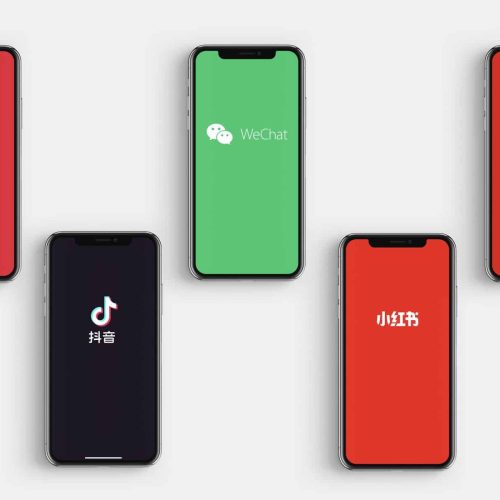To succeed in the Chinese eCommerce market, localization is essential, and our eCommerce agency understands this deeply. Going beyond simple translation means adapting marketing strategies to local cultural nuances. Understanding unique consumer behaviors, such as the significance of social commerce and live-stream shopping, is vital for driving engagement. As an eCommerce agency, we help brands leverage platforms like WeChat and Douyin to build an effective and relevant local presence.
The eCommerce market in China is highly competitive, dominated by giants like Alibaba, JD.com, Douyin, and Pinduoduo. For new brands, partnering with an eCommerce agency capable of implementing impactful marketing strategies is essential to gain visibility and compete with agile local players. Continuous innovation and flexibility are key to succeeding in this ever-evolving market, and an experienced eCommerce agency can provide the expertise needed to navigate these challenges.
For over 15 years, we've been expertly managing China eCommerce marketplaces for our clients. Leveraging a data analytics-driven strategy, we're committed to boosting your sales growth and profit margins on Tmall / Taobao / Jing Dong / PinDuoDuo
Our expertise in traffic generation will attract visitors to your DTC (Direct to Consumers) store in China, utilizing a mix of free, paid, or earned strategies. In China, DTC success hinges on WeChat and leverages private traffic.
Our extensive network of distributors, both online and offline, spans all regions ins China. We can find the ideal distributor in China for your product.
SocialCommerce has become the primary driver of commerce growth in China. We execute large-scale campaigns with Key Opinion Leaders (KOLs) and Key Opinion Consumers (KOCs) on Douyin/Tiktok to sell your products.
We understand that every brand has unique needs and goals in the Chinese market. Our diverse business models cater to different levels of involvement and investment, providing flexible solutions that align with your specific requirements.
Agency Fees based on service complexity
Monthly fixed fee per store plus commission on sales.
Growth margin on products
We combine your goals, industry expertise, and products with our data insights to craft the optimal eCommerce strategy.
We design and open your sales channels in China. We generate traffic through KOL, KOC, paid media and content.
We manage eCommerce campaigns for major Chinese shopping festivals like 11.11 and 6.18. We continuously optimize operations, media, campaigns, and sales to maximize performance.
AI improves personalization and shopping satisfaction.
AI optimizes supply chains and logistics, reducing waste and costs.
AI-powered virtual influencers provide personalized shopping interactions.
AI chatbots reduce customer service costs by handling routine inquiries and support.
AI-generated content (AIGC) enhances user engagement and drives innovation in eCommerce.
The cost to start an e-commerce business in China can vary widely depending on the scale and scope of the operation. Initial costs include website development, registration fees, initial inventory, and marketing. It’s crucial to also factor in ongoing operational costs such as platform fees, shipping, and staffing.
Social commerce plays a critical role in China’s e-commerce landscape. Platforms like Douyin, WeChat and Xiaohongshu integrate shopping with social media, allowing users to purchase products directly through these apps. This integration significantly influences consumer purchasing behavior.
Yes, foreign companies can participate in cross-border e-commerce in China without establishing a legal entity. They can sell products directly to Chinese consumers via platforms like Tmall Global, Douyin and JD Worldwide, which handle logistics and customs clearanceToggle Content
Product registration is not required for foreign companies selling through cross-border e-commerce channels. This exemption facilitates easier market entry for products that would otherwise need compliance with domestic regulations.
In 2024, China’s e-commerce sales are projected to exceed $3 trillion, demonstrating significant growth from previous years. This surge underscores China’s dominant position in the global e-commerce market.
Categories such as healthcare, luxury goods, electronics, and fashion are experiencing robust growth. The healthcare and luxury segments, in particular, are thriving due to increased domestic consumption and a growing middle class
Operational costs include platform fees, which can vary depending on the e-commerce service provider, logistics costs, warehousing, and customer service operations. Marketing and advertising expenses also constitute a significant part of the budget.
A TP, or Tmall Partner, helps foreign brands navigate Tmall’s platform by managing store operations, marketing, customer service, and logistics. TPs are crucial for brands that need local expertise in effectively reaching Chinese consumers.
Media costs can vary widely but are essential for driving traffic and conversions. Costs depend on the choice of platforms, the extent of digital marketing campaigns, and competition for ad space, especially on popular platforms like WeChat and Douyin.
To reduce costs, businesses can utilize AI for customer service via chatbots, optimize supply chains with AI-driven analytics, and employ automated marketing tools to streamline operations. Leveraging technology not only cuts costs but also enhances efficiency and customer experience

Our social agency plans and executes social campaigns in China with the support of local influencers

Our web agency designs and develops websites and web applications tailored to deliver a localized user experience

Our branding and design agency creates unique, localized brand identities for modern China.